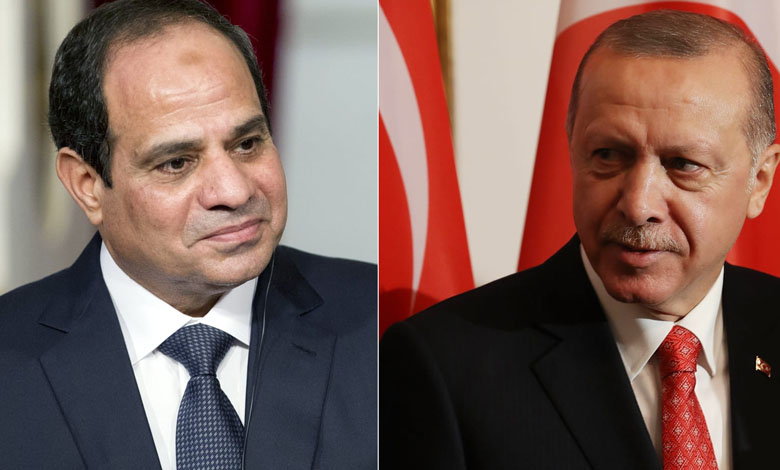How does the Turkish-Egyptian rapprochement affect the Libyan crises? A report explains

After years of inconsistencies in visions and ideas due to Turkey’s support for terrorism, extremism, and spreading chaos and corruption in Arab countries, against the backdrop of Turkey’s position in support of the Muslim Brotherhood and its rejection of the June 30, 2013 revolution, following the ouster of the terrorist organization from Egypt in response to the demands of the Egyptian people.
The Libyan issue is one of the most thorny issues between the two countries. The rapprochement came after Egyptian President Abdul Fattah Al-Sisi shook hands with his Turkish counterpart, Recep Tayyip Erdogan, starting with the real reconciliation process, starting with the handshakes at the opening ceremony of the World Cup in Qatar in 2022, followed by multilateral diplomatic meetings between the concerned parties.
How is Turkish-Egyptian rapprochement affecting Libya’s crises?
Since 2018, the Libyan issue and its crises have been a strong factor in the disagreements between Egypt and Turkey, due to Ankara’s signing of the Maritime Authority Agreement with the former Libyan Government of National Accord, headed by Fayez Al-Sarraj. The agreement has stirred much controversy because of gas and oil and Turkey’s endless ambitions in the Arab countries. At the same time, Egypt and Greece refused to sign the National Unity Government two memorandums of Understanding with Turkey in the field of hydrocarbon resources, in order to carry out gas and oil exploration.
Turkey also benefits from the survival of its ally Dbeibeh at the head of the executive authority, as a continuation of its military and economic presence, which is being consolidated day after day through joint cooperation.
According to the Associated Press, many observers of the situation in Libya do not expect a breakthrough close to the possible Egyptian-Turkish reconciliation, the two countries playing a prominent role in Libya, where the Turkish intervention in Libya since 2019 through supporting mercenaries with material financing, weapons, and military advisors to support the armed forces in Tripoli, is considered a support that will worsen the crises in Libya, in addition to its goal of repelling the attack of the national army led by Khalifa Haftar.
“Egypt supports the Libyan Parliament and the national army in the eastern and southern regions, and Turkey supports the High Council of State, the Dbeibeh government, and allies of politicians and militias in the western region.”
Bathily’s Initiative and Elections in Libya
The most significant development in recent months has been the launch of an election outreach initiative by the head of the UN mission in Libya, Abdoulay Bathily, following outrageous attacks by Bathily on the House of Representatives and the State, supported by Egypt and Turkey.
In support of Bathily, a UN Security Council presidential statement issued on 17 March endorsed the initiative and threatened sanctions against parties blocking the elections.
For its part, Egypt expressed its regret over the issuance of the Council’s statement, due to its support for the Bathily initiative, which Cairo is reticent to support, out of fear of undermining the role of the two Councils in the political process.
Informed sources pointed out that the two countries have a common interest in strengthening the political track between the two Houses of Representatives and the State, in order to prevent the formation of a new body according to the Bathily initiative, similar to the previous political dialog meeting in Geneva, which could come with a constitutional base in the disfavor of local allies.
Libya is currently facing a severe political crisis that led to the postponement of the country’s general elections, which were originally scheduled for 2021, under unsuitable conditions.












